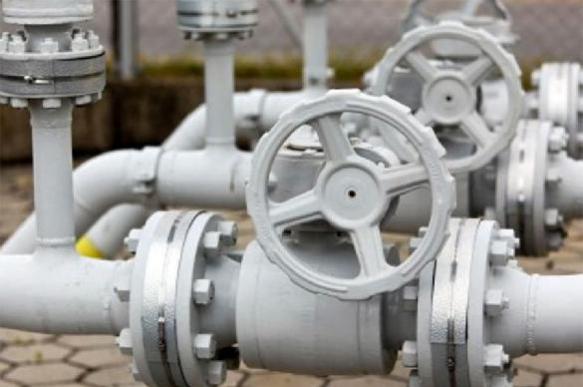USA strangles Europe with Russian gas
The anti-Russian hysteria that reached its peak in the form of the July package of US draconian sanctions against the Russian Federation, is now gaining momentum in European countries. Donald Tusk, the chief of the European Council, openly urged EU leaders to take prompt measures to block the construction of the Nord Stream-2 natural gas pipeline.

The European Commission passed amendments to the Gas Directive, which excludes the need for new pipelines, because by 2030, due to the reduction of domestic production and the consumption of fuel, the volume of gas imports to the EU will allegedly not increase. Moreover, even if the Nord Stream-2 is built, Brussels intends to deprive Russia's Gazprom of the monopoly right to manage this pipeline as the Russian giant will not be able to transport and sell gas to European consumers at the same time.
In November 2016, the European Commission withdrew the Nord Stream-1 gas pipeline from the Third Energy Package. However, in case of Nord Stream-2, Brussels intends to apply stringent conditions of European energy legislation. In addition, Washington tries to block the project completely, because of the intention to transport US liquefied natural gas (LNG) to Europe.
The law on sanctions against Russia, adopted by the US Congress, allows to punish companies that either invest from $1 million in the construction of Russian export gas pipelines or provide equipment, technology and services for the purpose. Nord Stream-2 takes a separate paragraph in the law, where it says that the US will continue to obstruct the construction of the pipeline.
The US and the EU are doing the above to save Ukraine from imminent collapse in the field of energy. If Nord Stream-2 is launched, Ukraine will lose huge revenues from the transit of Russian natural gas to Europe. Another goal is to weaken Gazprom's position in the European market and prepare conditions for the American LNG to enter the market. The problem is that LNG terminals in Europe are capable of accepting small amounts of gas.
The European Commission takes a tougher stance on the Nord Stream-2 project due to the results of the September elections to the Bundestag that weakened Chancellor Angela Merkel's supporters in the parliament, who supported the idea of building the new gas main. The "Greens" are going to block the project.
In addition, the government of Denmark threatens to prohibit the construction of the gas pipeline in its territorial waters. If this threat is materialised, one will have to change the construction route, and this will increase costs.
Rustam Tankayev, a member of the Committee on Energy Strategy and Development of the Fuel and Energy Complex of the Chamber of Commerce and Industry of Russia, believes that many in Europe are convinced that US sanctions target the EU, rather than Russia, to reduce the competitive ability of the European Union on the world market.
"The Europeans are correct when they say that these sanctions are unfair competition. Russia is successfully entering the markets of South-East Asia, and will not suffer much from the decline in exports to the European market. Europe will suffer in the first place. The offshore section of the Turkish Stream pipeline has already been completed, and it will take care of a significant part of the natural gas, which would have passed through the gas transportation system of Ukraine. Ukraine is unable to maintain the system in order. The Ukrainians have spent as much as ten percent of the necessary amount for its maintenance and repairs over the past three years.
"A recent report conducted by engineers of European gas companies indicates that Ukraine's gas transportation system will become dysfunctional by 2019. This does not mean that Europe will be left without gas: it will be able to buy liquefied natural gas, but it will be twice as expensive as Russian gas. The cost of European product will soar, and the product will become uncompetitive with respect to the United States. Europe's prime competitor is the US," the expert told Pravda.Ru
"Will the Europeans be able to defend their rights for the construction of the Nord Stream-2 at international organisations?"
"To prohibit the construction of the Nord Stream-2, one needs to collect signatures of all EU members. This may take up to three years at best. France and Germany are strongly against the prohibition, and they will never sign any of these papers.
Other countries, such as Poland and Denmark, oppose the Nord Stream-2, but the vast majority of countries, including Sweden, support its construction. Most likely, Nord Stream-2 will be built, because the preparation for its construction is in progress, and all facilities that were supposed to be built on the territory of Germany have already been built, and the funds have been invested. But, of course, any project can be broken, and Nord Stream-2 is no exception.
Aidyn Mehtiyev
Pravda.Ru
Read article on the Russian version of Pravda.Ru
Subscribe to Pravda.Ru Telegram channel, Facebook, RSS!


